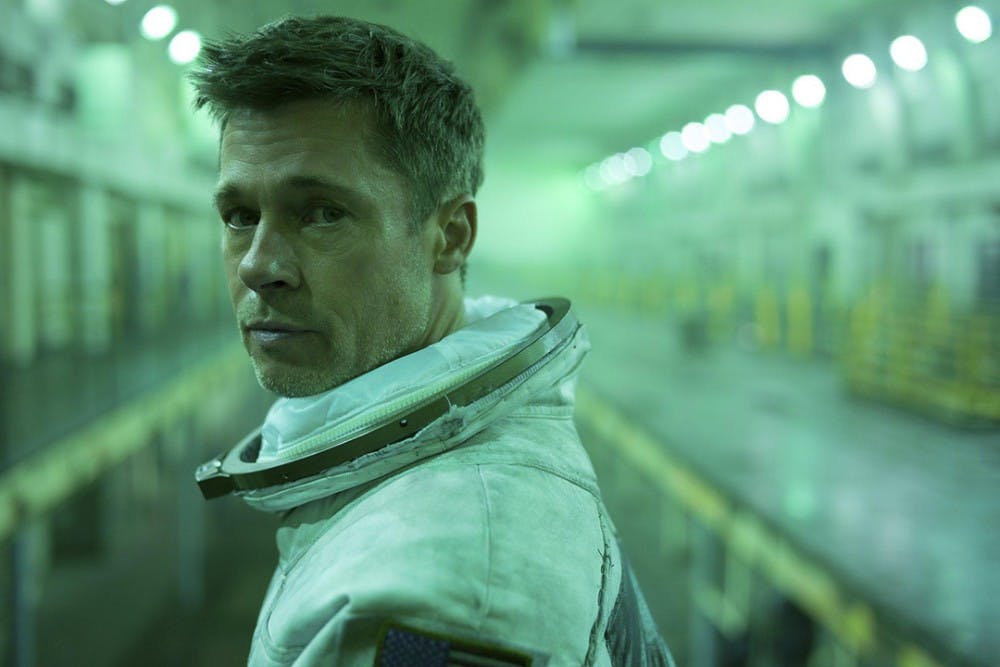Movie: Ad Astra
Release Date: Sept. 20, 2019
Runtime: 2 hours 3 minutes
Rating: B+
On its surface, space is beautiful, alluring and vast. However, like the dark side of the moon, space hides a separate half that is dark, bleak and lonely.
Major Roy McBride (Brad Pitt) knows this all too well. After all, he feels more at home among the stars than he does grounded on Earth.
As a veteran astronaut, Roy has found purpose in space, but years of following orders have left him more machine than human. When audiences first meet him, his coldness is obvious and illustrated in brief flashbacks with his estranged wife (Liv Tyler) and constant monologues that act like diary entries.
You can't really blame him, though. As the son of famed astronaut H. Clifford McBride (Tommy Lee Jones), Roy has always lived more in his father's shadow than he has as his own person.
His father, a trailblazing astronaut, was presumed dead for years after a mission to find extraterrestrial life didn’t go as planned. For most of Roy's life, his father was a stranger, but the nation's immortalization of him as a hero was enough for Roy to pretend he knew his father, too. As a result, many of Roy's life choices have served as responses to his father's absence.
This is proven especially true after strange power surges begin to wreak havoc across the planet. The U.S. government recruits Roy to stop them because they believe his missing father is actually alive and might be the culprit. Consequently, Roy must travel to Neptune, the location of his father's last known whereabouts, to confront his past and preserve our planet's future.
Though Roy’s journey to Neptune is littered with dangerous obstacles such as space pirates and crash landings, the bulk of his mission revolves around his desperate attempts to connect with this mysterious figure who has acted as a lifelong, looming presence despite being light-years way.
In "Ad Astra," Brad Pitt is definitely the man of the hour, as other supporting characters only serve as footnotes to his character's mission. Because of this, one might assume Pitt would overreact or overcompensate for the lack of dialogue and other fleshed-out characters. However, there’s power in his subtlety. Pitt says so much without saying anything at all, as he uses his eyes and other physical ticks to speak for him.
Space is just as much of a character as Roy. Not only is it the answer to all of life's most burning questions, but it is also the answer to Roy's more personal ones and it uses its desolate landscape to exacerbate the fear of the unknown regarding both inquiries.
In addition to its philosophical ponderings, the film's other strengths lie in its breathtaking shots and gorgeous visual effects. Its take on a commercialized version of space is just as fresh, and it feels more familiar than it does unattainably futuristic.
Like most modern sci-fi films, "Ad Astra" forces us to grapple with humanity through a protagonist who is just as clueless as we are. However, for those expecting a more traditional sci-fi adventure, you’ll get that in moderation. At its heart, “Ad Astra” is a melancholy mystery and it works best in this way.
Although the film ends rather abruptly, "Ad Astra" surprisingly answers just as many existential questions as it poses, and they left me content and even hopeful. Through his dangerous journey to Neptune, Roy goes on record as enduring the most grueling therapy session ever.

